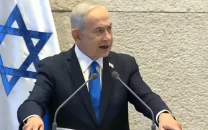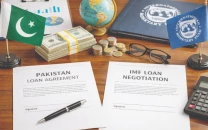The remaking of Pakistan
Need for drastic change in our present anachronistic set-up is urgent to get rid of elitist-led status quo in Pakistan

As the diseased condition of one organic element in the human body affects the normal functioning of the entire body, the health and well-being of a state also depends on proper functioning of its different organs, all inextricably interconnected with one another in providing and regulating the legal, political, economic and social frameworks for an institutionalised governance, based on rule of law, justice and equality. In our case, unfortunately, with the founder’s early demise, Pakistan was orphaned in its very infancy and lost the promise of a healthy youth with acute systemic deficiencies and normative perversities restricting its orderly natural growth. It went through politico-constitutional delinquencies and economic failures that have no parallels anywhere in the world.
Ours is the story of a society that has been going round and round in aimless circles for the last 67 years. After the Quaid, Pakistan was left without any sense of direction and in a state of political bankruptcy and moral aridity. It started cutting itself into pieces, losing within less than quarter of a century, not only its own half, but also the very rationale that had inspired its creation. The real Pakistan disappeared with its tragic dismemberment and whatever was left has been converted into a land of political merry-go-round by its self-serving, corrupt and incompetent rulers. What an irony that a country which on its birth was considered a “20th century miracle” and which was created entirely through a democratic and constitutional struggle, should still be struggling for genuine democracy, social justice and equal rights for all. Unsure of our future, we are still groping in the dark with one crisis after another and have yet to figure out a sense of common purpose for ourselves as a nation. Absence of real democracy, rule of law and good governance have been our continuing hallmarks. The country has been engaged in a precarious struggle to define a national identity and evolve a political system for its ethnically and linguistically diverse population.
Pakistan is known to have more than 20 languages and nearly 300 distinct dialects. This diversity contributed to chronic regional tensions and provincial disharmony, thus impeding the process of nation-building. Looking at the systems of other developed and developing countries, we find ourselves a unique example of a federation with almost no parallel anywhere in the world. Our present provincial set-up has long been the cause of political instability. It has not only been fuelling misrule and corruption in the country, but also aggravating the sense of inequality and deprivation that exists among the federating units. We are perhaps, the only country in the world with provinces based on ethnicity and language. Also, no country, roughly equal to Pakistan’s geographical and population size has so few and so large provinces. In any unequal set-up, no method of governance will work. There is a strong underlying resentment in Balochistan and in other smaller provinces against what is seen as continued ‘Punjabi dominance’ and inequitable distribution of power and resources. Our Constitution does not provide solutions to the genuine concerns on the inequality of the size of provinces and lopsided sharing of political and economic power. Lately, there have been demands for more provinces on ethnic or linguistic grounds. If this trend were to continue, we will be left with a loosely wired skeleton of a federation with self-serving, disgruntled and corrupt politicians playing havoc with this country. It is a system designed for paralysis, which we are already experiencing. The solution lies in separating governance from ethnic-linguistic considerations by replacing the present four provinces with as many new administratively-determined provinces as necessary, with some balance in their geographical and population size.

Most large and medium-sized countries in the world are divided into small-sized provinces or states as administrative units. For example, China has 34 provinces, India 28 states and seven union territories, Iran 30 provinces, Indonesia 33, Egypt 26, France 26, Germany16, Switzerland 26 cantons, Nigeria 37, Philippines 80, Thailand 78, Turkey 81, the UK 114 counties and the US 50 states. By dividing our country into smaller administrative units as provinces, we would not only be eliminating the causes of regional acrimony and discontent, but also ensuring effective and efficient governance through elected bodies at local and grassroots levels.
Also, given our pathetic performance in our political conduct and discipline since our independence, we, like most developing countries, are perhaps not yet fit for the parliamentary system. Britain struggled for centuries to reach its current parliamentary status. For us, it would be too long and too arduous a journey to be indefinitely chasing illusory goals. Temperamentally, we are a ‘presidential’ nation. It is time we abandoned the system that we have never been able to practise, and explored an adult franchise-based ‘presidential system’ suitably designed for and tailored to Pakistan’s needs.
What, in fact, we need is the remaking of Pakistan as envisioned by the Quaid-e-Azam, free of ethnic and linguistic labels and sectarian, communal and regional disharmony. We must remember that the Pakistan of 1947 could not survive for even 25 years. Despite the 1973 Constitution, the remaining Pakistan continues to face threats of further disintegration, mainly due to unaddressed regional disparities and concerns. Changing faces will not do, nor elections alone will make any difference. The system itself must change.
A wake-up call has already been given, loud and clear, for a new Pakistan. The need for drastic change in our present anachronistic set-up is urgent to get rid of the elitist-led status quo in our country. To avert the vicious cycle of known tragedies, we need a purposeful national debate involving a holistic review of our entire governmental system. A high-powered national commission needs to be tasked to conduct this discourse and evolve a blueprint for remaking of Pakistan through political, economic, judicial, educational, administrative and land reforms.
Reason, not self-serving interests or emotions, will lead us to a new Pakistan.
Published in The Express Tribune, October 25th, 2014.
Like Opinion & Editorial on Facebook, follow @ETOpEd on Twitter to receive all updates on all our daily pieces.















COMMENTS
Comments are moderated and generally will be posted if they are on-topic and not abusive.
For more information, please see our Comments FAQ